Britain’s new Prime Minister, Liz Truss, surrounds herself with a team of loyalists and right-wingers. The lack of white men in the four highest government offices also testifies to the new diversity in the Tory party.
New Prime Minister Liz Truss arrives at her new office at 10 Downing Street.
Liz Truss signaled Tuesday that she doesn’t want to take any familiarization time given the country’s pressing problems. At noon she arrived for an audience with Queen Elizabeth II, who is currently in Scotland at Balmoral Castle and has declined to return to Buckingham Palace due to physical ailments.
The 96-year-old Queen, who had just received Boris Johnson’s resignation in a separate audience, formally mandated the 47-year-old Truss to form a government on her behalf. After this ritual, the newly crowned Prime Minister immediately flew back to London to take over the duties of office and put together her cabinet.
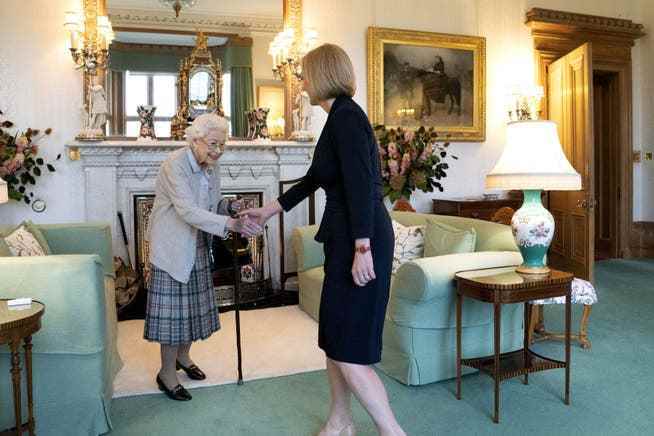
During an audience at Balmoral Castle in Scotland, Queen Liz Truss officially mandates the formation of a government.
Three political priorities
Stormy weather prevailed in London, but after arriving at 10 Downing Street, Truss was able to do one during a break in the rain short speech keep. “We will brave the storm,” she said, referring to the weather and the economic situation. In contrast to her predecessor Johnson, Truss also dispensed with flowery symbolism and historical allusions, instead focusing very soberly on her priorities in terms of content.
First, she pledged to put the UK back on the growth path with tax cuts and reforms. Second, she announced a package of measures to alleviate the exploding energy prices for the current week. Third, she promised to solve the immense capacity problems at the national health service NHS. Truss’ promise to immediately abolish the payroll tax, which Johnson wanted to use to finance the reduction of waiting times in the NHS, shows that this list of priorities is not without conflicting goals.
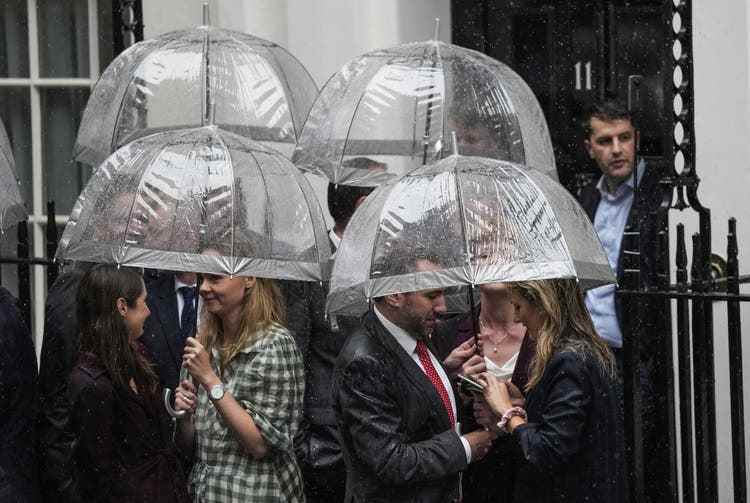
Staff and friends of Liz Truss await the arrival of the new Prime Minister at Downing Street in the pouring rain.
Allies in key positions
Truss appointed her close confidant Therese Coffey, who is considered competent and had served as Secretary of Labor under Johnson, as Secretary of Health and Deputy Prime Minister. The most important figure in her cabinet, however, is the former Economics Minister, Kwasi Kwarteng, who will be promoted to Truss’ Finance Minister. The son of immigrants from Ghana is one of Truss’s close associates and is the first black politician to hold the office of Chancellor of the Exchequer.
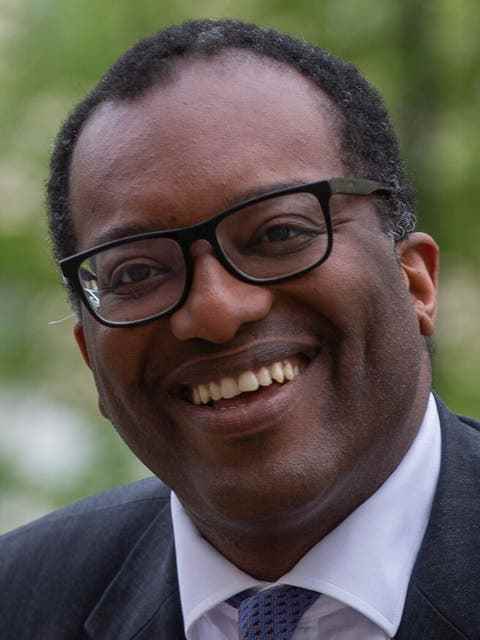
Educated at the elite schools of Eton, Oxford and Harvard, the Londoner is known for being quick-witted and sociable, which has sometimes led to comparisons with Boris Johnson. After a doctorate in history, Kwarteng worked in the financial industry, but he also made a name for himself as a book author. Like Truss, he stands for a clear market economy course, low taxes and a lean state.
The new Secretary of State will be James Cleverly, who has long held various positions within the conservative networks and is popular within the party. In Johnson’s caretaker government, he was education secretary for the last two months, before that he served as junior secretary under Truss at the State Department, where he bribed the new prime minister with his loyalty.
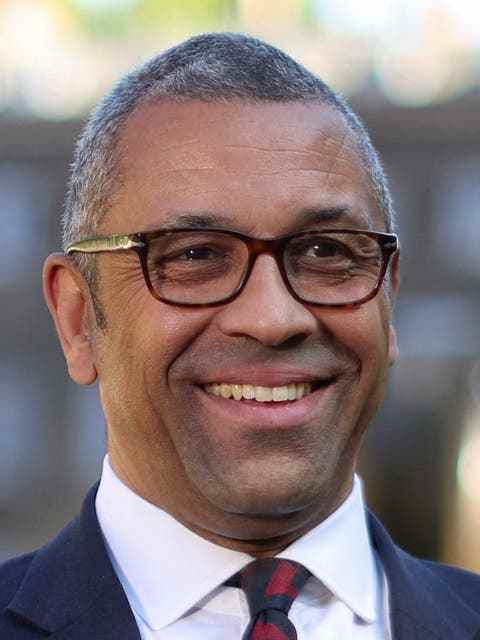
Diverse team at the top of government
Cleverly is the son of a white British father and a black mother from Sierra Leone. And since Suella Braverman, a woman of Indian descent, has been promoted to Minister of the Interior, for the first time in history there are no white men in the four highest government offices. This is a testament to the diversity of the Conservative Party, which was already evident in the first phase of the race to succeed Johnson. But Braverman’s example also shows that members of ethnic minorities sometimes stand out with particularly tough positions in migration policy.
Braverman had run as a right-wing candidate to succeed Johnson, but dropped out early because of controversy over her suitability within the faction. Under Johnson, she served as Attorney General. In this function, she declared the law on the unilateral overturning of the Northern Ireland Protocol anchored in the Brexit Treaty to be in conformity with international law.
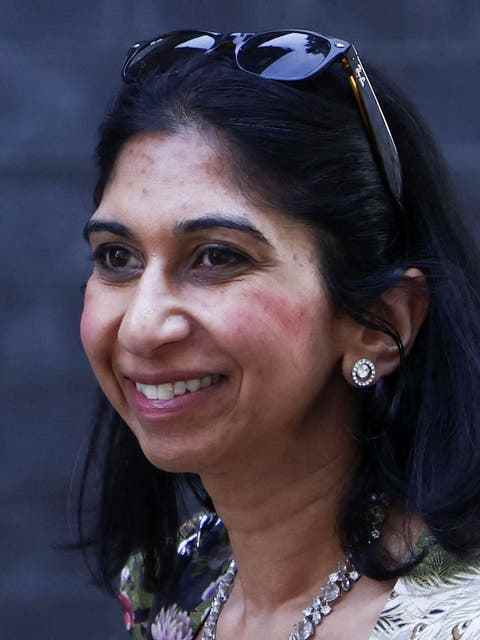
Suella Braverman.
She is also campaigning for withdrawal from the European Convention on Human Rights after judges in Strasbourg temporarily halted the controversial deportation of asylum seekers to Rwanda. Braverman is now likely to continue the tough migration policy of her predecessor Priti Patel.
Little support in faction
On Tuesday evening, former moderate Truss competitors such as Tom Tugendhat and Penny Mordaunt were also hoping for higher government posts. Overall, however, it is noticeable that Truss has many loyal companions and representatives of the right-wing party around him. This is likely to have only partially succeeded in broadening its power base in Parliament.
Because in the first phase of the race for Johnson’s successor within the conservative faction, the centrist Sunak Truss had clearly distanced himself. Truss is the first Tory leader since Ian Duncan Smith in 2001 to be elected by the party’s grass roots, despite winning over only a minority of the group. It was a similar situation for Jeremy Corbyn, who as Labor leader was popular with the left base but always remained controversial with MPs.
Sunak clearly backed Truss on Monday. In its Farewell speech also assured Johnson of his successor’s full support on Tuesday and urged the party to rally behind the new prime minister. Truss now has the chance to convince with rapid interventions and to prove itself as a crisis manager. Should political success fail to materialize, however, internal party critics and rivals are likely to quickly come out of cover again.
